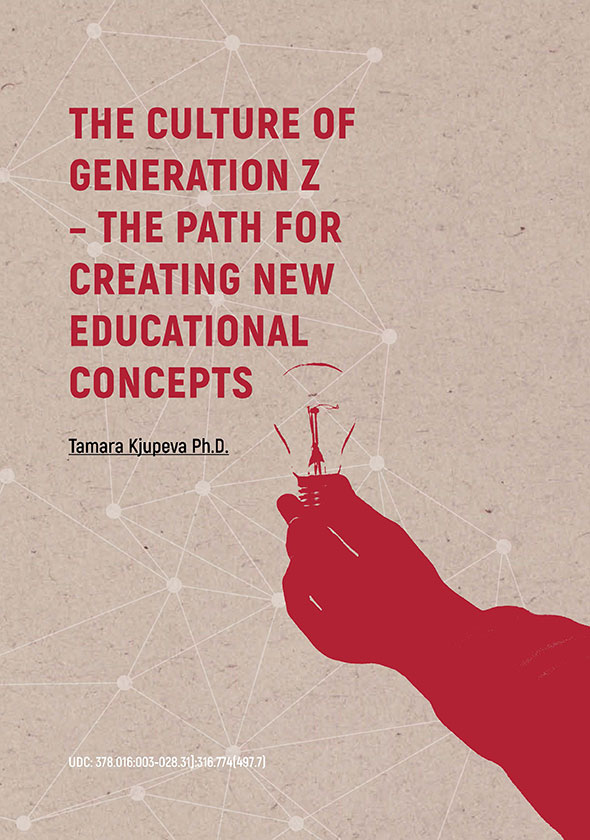
The Culture of Generation Z – The Path for Creating New Educational Concepts
Volume 2 | No 1 | March 2023
Tamara Kjupeva
Faculty of Philology “Blaže Koneski” - SkopjeUDC: 378.016:003-028.31]:316.774(497.7)
Abstract
If we summarize the experiences of the past, it can be said with certainty that social, economic and social changes determine the culture of individuals and the community as a whole. The Covid - pandemic intensified the integration of the world into the virtual dimension of life, and together with the psychological and social consequences of its development - created a world that has grown into the greatest historical challenge of all science. The generation born after 2000, categorized as Generation Z, learns and develops in technologically advanced circumstances and influencing factors that go beyond traditional pedagogy. Among the factors that determine the personality development of these generations, in addition to family and peer groups, the media have a dominant place. Technology is a part of their identity, and they are tech savvy but lack problem-solving skills and have not demonstrated the ability to look at a situation, put in context, analyze it and make a decision (Coombs, 2013). The language of Generation Z is a communication system with authentic rules and inner structure. Faced with modern forms of communication, they create new language codes and innovative and creative forms of expression. Faced with the greatest challenges in the history of education and the impact of technology on child development, modern education systems require models, approaches, skills and literacy that will meet the individual needs of the new generation of young people and, at the same time meet market needs. For these reasons, new educational concepts should be based on approaches that ensure the integration of critical and creative thinking and the development of emotional intelligence. Artificial intelligence is increasingly creating operating systems that are predictors of user behaviour. Algorithms have become the most powerful tool for targeting, managing and directing culture. Hence, the new culture, almost without exception, is defined as an algorithmic culture.
Keywords: generation Z, culture, applications, language, education

